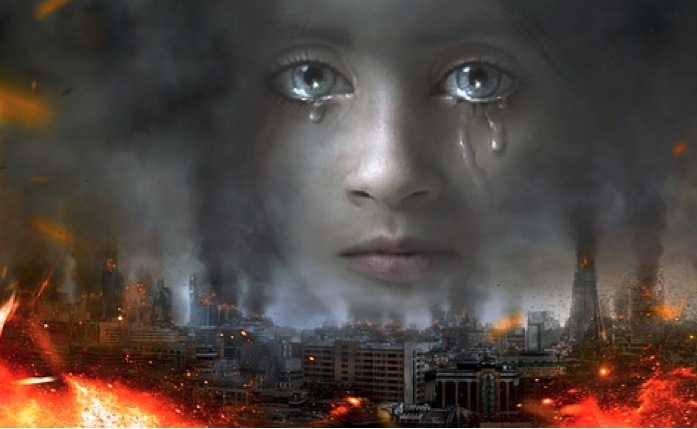We are told our minds are powerful tools. That anything we can imagine we can create. And this is true. Which begs the question: “Why have we not imagined and created a world without suffering?”
Because we don’t believe it’s possible.
Suffering is everywhere. It’s inescapable. Buddha’s first Noble Truth is that dukkha — suffering — is an innate characteristic of the physical realm. His Noble Eightfold Path is the guidebook for getting out of suffering by practicing right view, right resolve, right effort, right mindfulness, etc.
But what’s “right?”
We think we don’t know. So we hare off seeking answers in Buddhism and other religions and spiritual sects, workshops and seminars. We ask others. We consume books. And yet all along the only place the answer lies is within our own hearts.
But we’re taught not to trust our hearts.
We constantly hear platitudes like “Listen to your heart.” But then, if we take this literally and our hearts urge us to go against the common herd, people jump all over us. “Go to art school? Are you insane? Become an archaeologist and spend your life in a ditch with a toothbrush? You’ll never make a living that way! Get back to your economics classes!”
We hear “Love will find a way,” and “All you need is love,” and how “Love conquers all.” But how often do we find those sayings to be true? Can I eat love? Can love conquer a bullet? Can love keep the greedy landlord from turning a destitute mother and children out into the street? Can it keep our governments from sending young people to war to bleed, suffer and die for some incomprehensible cause dear to the greedy military-industrial complex?
Apparently not. And thus, perhaps unconsciously, we become discouraged and skeptical and disillusioned.
And tired.
We suffer and we believe in suffering. Because if love really cannot conquer all, what hope is there?
And yet …
I’m beginning to understand that the kind of love we talk about and think about and sing about and make up poems about is a pale pale shadow of the love we really are.
I’m beginning to sense the state of existence where love is not a frail, uncertain and untrustworthy ideal. I’m beginning to slide into the state where love and unity are one. Where love is a palpable holding field … the interconnecting force enlivening and sustaining every person, every blade of grass, every exploding nova in the sparkling night sky, weaving us together in a warm blanket of safety, infinite security and peace. A reality in which we need not toil nor spin but instead be like unto the lilies of the field, effortlessly adding our scent and color to the warm summer breezes, basking sweetly in the sun.
Love as power … not the power of one thing over another. Love as unity and thus the power of the whole of Creation itself.
Yeshua ben Josef said many things about love. It was the foundation of his teachings. Embodying love as unity, as Creation, he knit together a small community of disciples who were bound, not by rules and scripture, but by the shared experience, the shared truth of their infinite connection and oneness with Yeshua, with each other, with life, with God.
They opened their hearts and accessed Love with a capital “L” in all its power and glory … not because they accepted it from Yeshua as an outside source, but because they learned to accept that his love was already in their hearts, in their very beings. His love was their love. His love was God’s love. Their love was his love. Their love was God’s love.
Equals in unity. Brothers. Sisters. Companions.
God on the only journey worth taking.
Most of those who came after didn’t have that internal experience. So they talked about love and the Kingdom of Heaven as something outside of them. As something to be earned and accessed after death … the only place they could imagine it resided. Because surely heaven didn’t, couldn’t, reside here in this place of infinite suffering and sorrow.
Surely, it couldn’t reside in them. It couldn’t be that simple.
But it was. And it did. Just as it resides in you and me.
We just have to take our eyes off the world of suffering—what is ultimately the illusion of suffering once our vision turns inward to the Truth. We have to insist on experiencing only what’s real: The love that’s in us. The love that is us. The heaven we experience through feeling our love.
This focus on the feeling of our love—however we conjure it, whether through thoughts of a loved one or the remembered beauty of a misty mountain sunrise or the love of a beloved pet—the more we feel it and trust that feeling, the more we lean into it and ride the expansion of that feeling of love, ignoring the mad barking of the mind with its crazed call to believe in the insanity of suffering … the closer and closer to Heaven we come.
The mind can’t imagine it.
But our hearts are already there.

